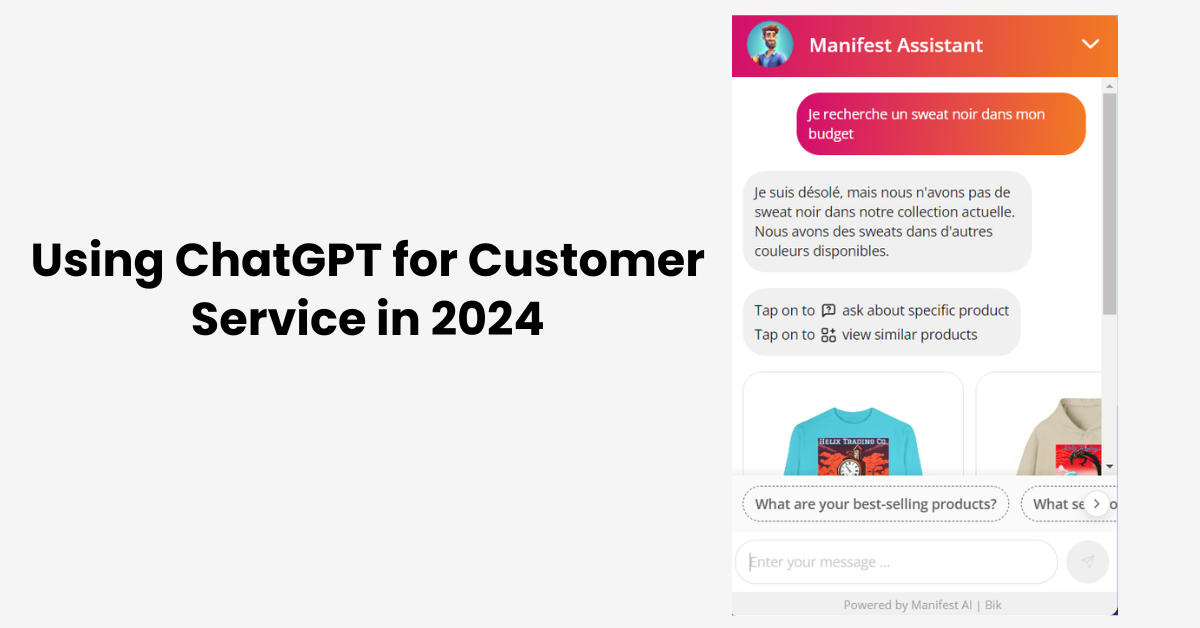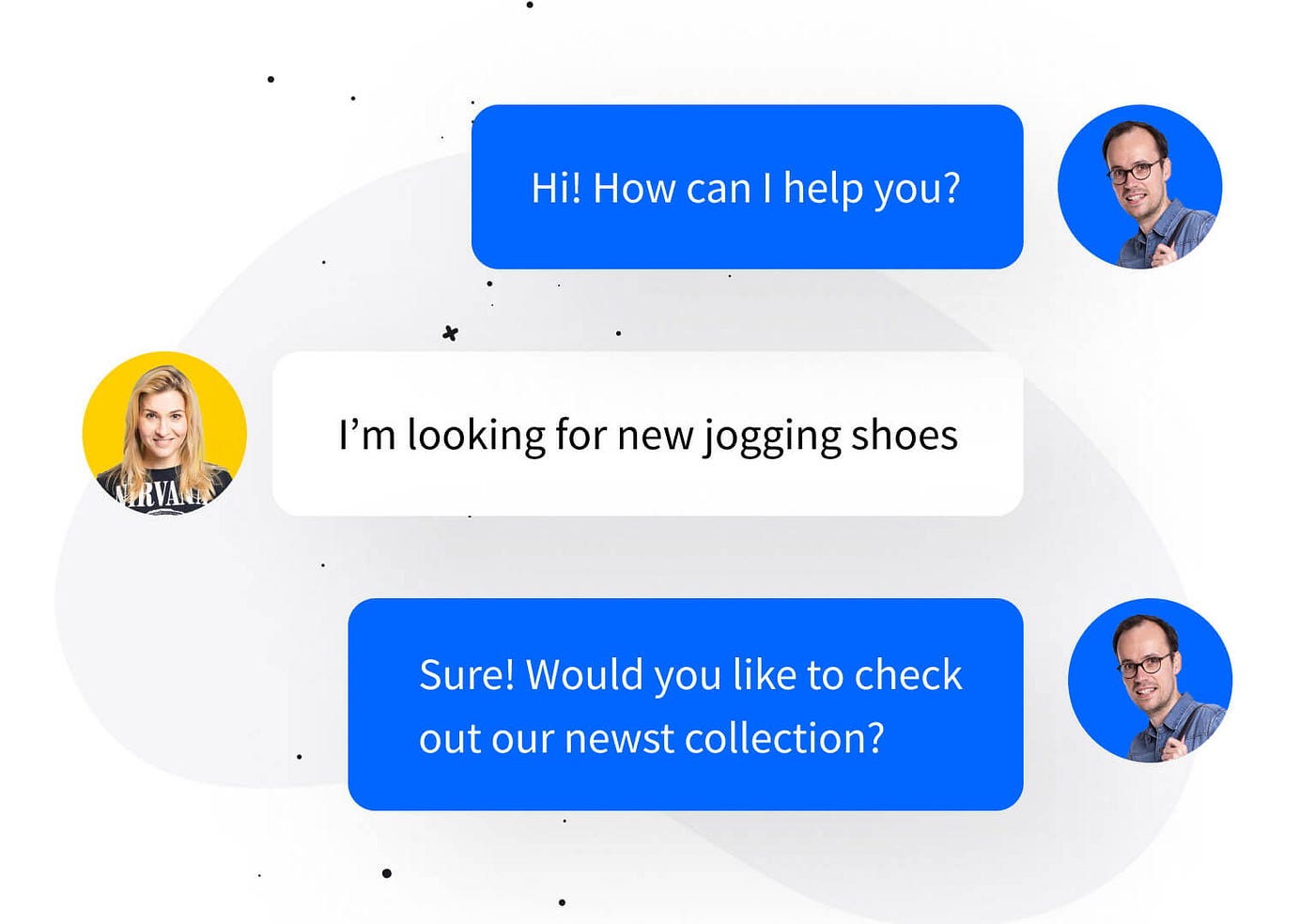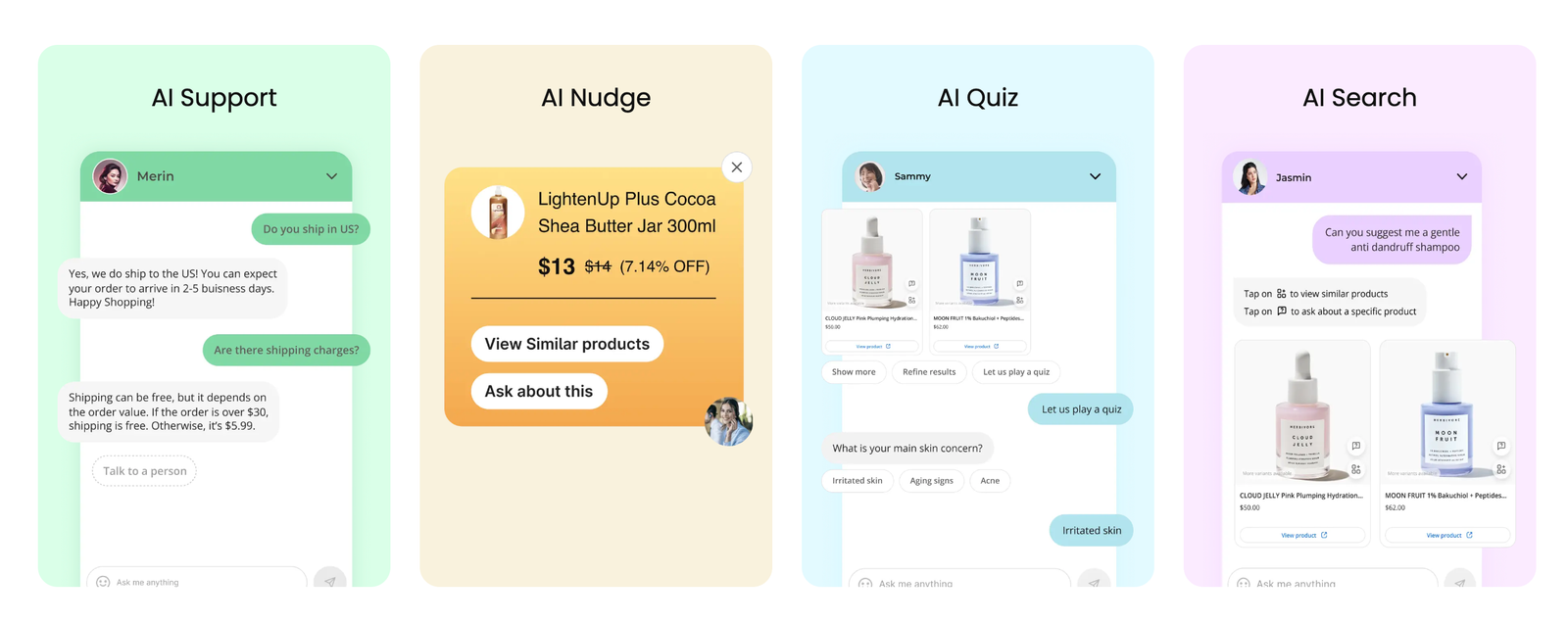Using ChatGPT for Customer Service in 2024

In 2024, over 75% of businesses have integrated AI tools like ChatGPT into their customer service frameworks, marking a significant leap from just a few years prior. This widespread adoption isn't just a trend; it's a testament to the efficiency and scalability that ChatGPT offers. By leveraging this advanced AI, companies have drastically reduced response times and improved customer satisfaction rates. In this blog, we delve into how ChatGPT revolutionizes customer service, focusing on real-world applications, challenges overcome, and the tangible benefits observed by businesses across various industries. Join us as we explore ChatGPT for customer service in 2024.
Why is ChatGPT good for customer service?

ChatGPT for customer service is suitable for its ability to understand and generate human-like text, making it an efficient tool for handling various customer service tasks. Here are the benefits of using ChatGPT for customer service:
- 24/7 Availability: Unlike human agents who require breaks and have working hours, ChatGPT can operate around the clock. This constant availability means customers can receive immediate assistance at any time, significantly enhancing the customer experience by providing timely responses to queries and concerns.
- Handling High Volume of Queries: ChatGPT can manage a large number of requests simultaneously. For businesses receiving thousands of customer inquiries daily, ChatGPT can significantly reduce wait times by instantly addressing multiple customers' needs, ensuring that everyone gets the help they need promptly.
- Consistency in Responses: ChatGPT can offer uniform answers to frequently asked questions. This consistency ensures all customers receive the same information, reducing the risk of miscommunication and errors that can occur with human agents.
- Personalization: While interacting with customers, ChatGPT can tailor its responses based on the customer's previous interactions, preferences, and the context of the conversation. This personal touch can enhance the customer's experience, making them feel valued and understood.
- Cost Efficiency: Implementing ChatGPT for routine customer service tasks can significantly reduce operational costs. Automating responses to common queries frees up human agents to handle more complex issues, optimizing resource allocation and potentially leading to savings on labor costs.
- Scalability: As a business grows, its customer service needs often increase. ChatGPT can scale its services to handle an expanding volume of inquiries without the need for proportional increases in human customer service staff, allowing businesses to grow without compromising on the quality of customer support.
- Multilingual Support: ChatGPT can be trained in multiple languages, offering support to a global customer base without language barriers. This eliminates the need for multilingual human agents for basic inquiries, making it easier for businesses to expand into new markets.
- Continuous Improvement: With each interaction, ChatGPT learns and improves its responses. This ability to learn from conversations means that the quality of customer service can continually increase, with AI becoming more efficient and effective over time.
- Reducing Human Error: By automating responses to common questions, ChatGPT minimizes the chances of human error. This reliability ensures that customers receive correct information, enhancing trust and satisfaction.
- Supporting Human Agents: ChatGPT can handle routine inquiries, allowing human customer service agents to focus on more complex and nuanced issues. This not only improves the efficiency of the customer service team but also allows human agents to invest more time in issues that require empathy, judgment, and deep problem-solving skills.
How can you use ChatGPT and AI to improve your customer support?

To enhance customer support using ChatGPT and AI, consider the following strategies:
- Instant Response Systems: Deploy ChatGPT as a first line of response to handle common queries. For example, it can instantly provide answers to frequently asked questions, such as details about products, services, shipping policies, or return processes, reducing wait times and improving customer satisfaction.
- Ticket Routing and Prioritization: Use AI to analyze incoming support requests and automatically route them to the appropriate department or support agent based on the complexity and urgency of the issue. This ensures that more critical issues are prioritized and resolved faster.
- Personalized Recommendations: Implement ChatGPT to analyze customer purchase history and preferences, offering personalized product recommendations, or support. For instance, if a customer frequently purchases books from a particular genre, ChatGPT can recommend new releases in that genre, enhancing the shopping experience.
- Feedback Collection and Analysis: Utilize ChatGPT to collect customer feedback through surveys or post-interaction questionnaires. AI can then analyze this feedback to identify common issues or trends, helping businesses improve their products and services.
- Continuous Learning and Improvement: ChatGPT can learn from past interactions, using this knowledge to provide more accurate and helpful responses over time. This ability to learn from every customer interaction ensures that the support experience improves continuously.
The Future of AI and ChatGPT for Customer Service

The future of AI and ChatGPT for customer service is set to be transformative, with potential shifts in how businesses engage with their customers and manage service operations. Here's an in-depth look at what we can anticipate:
- Enhanced Personalization: The evolution of AI, including ChatGPT, will enable a deeper understanding of individual customer preferences, behavior patterns, and needs through advanced data analysis. This means customer interactions can become highly personalized, not just in responses to inquiries but also in proactive service offerings, recommendations, and support.
- Seamless Omnichannel Support: AI will facilitate seamless integration across various communication channels (email, chat, social media, phone), allowing customers to switch between them without repeating or losing context. ChatGPT could act as the central intelligence across these platforms, ensuring consistent and efficient service regardless of how or where a customer reaches out.
- Predictive Support: Future developments could allow AI systems to predict customer issues before they arise, based on historical data and real-time monitoring of product usage or service interactions. This predictive capability means businesses can offer solutions or support proactively, enhancing customer satisfaction and loyalty.
- Emotion Recognition and Empathy: Advances in AI will likely include improved emotional intelligence, enabling ChatGPT to recognize and adapt responses based on the customer's mood or tone. This could transform customer interactions by adding a layer of empathy and understanding, making digital engagements feel more human.
- Integration with IoT Devices: As the Internet of Things (IoT) continues to expand, AI could play a crucial role in offering support for a broader range of products and services. ChatGPT could directly interact with IoT devices to diagnose issues, offer troubleshooting steps, or even implement fixes remotely, providing a new level of convenience for customers.
- Continuous Learning and Improvement: AI systems, including ChatGPT, will become more sophisticated in their learning algorithms, enabling them to learn from each interaction more effectively. This continuous improvement will lead to faster, more accurate, and contextually relevant customer service responses over time.
- Ethical and Privacy Considerations: With the growing capabilities of AI in handling personal data for personalized service, ethical use, and data privacy will become even more critical. Future developments will need to focus on ensuring AI systems are transparent and secure, and respecting user privacy, maintaining trust in AI-driven customer service.
- Collaboration Between Humans and AI: Rather than replacing human customer service representatives, AI and ChatGPT will increasingly work alongside humans to handle complex cases that require human empathy, creativity, and decision-making. This collaboration will enable businesses to offer a blend of efficiency and personal touch.
Best ChatGPT-Powered AI Shopping Assistant For your Store

Introducing Manifest AI, your ultimate ChatGPT-powered AI shopping assistant, designed to revolutionize the shopping experience in your store. Built on the robust framework of ChatGPT 4, Manifest AI offers unparalleled assistance to your customers, ensuring a seamless and intuitive shopping journey from start to finish.
- Personalized Shopping Experience: Manifest AI analyzes customer preferences and past shopping behavior to offer tailored product recommendations. This personalized approach helps customers find exactly what they're looking for, enhancing satisfaction and loyalty.
- Efficient Customer Support: Powered by ChatGPT 4, Manifest AI provides instant, accurate responses to customer inquiries. Whether it's questions about product details, availability, or shipping options, Manifest AI ensures that your customers receive the information they need without delay.
- Seamless Navigation Assistance: Manifest AI guides customers through your online store, helping them discover products and categories with ease. This assistant reduces the complexity of navigation, making shopping a breeze.
- Post-Purchase Support: From tracking orders to handling returns and exchanges, Manifest AI offers comprehensive post-purchase support, ensuring that customers feel valued and supported throughout their entire shopping journey.
Conclusion
Integration of ChatGPT into customer service strategies in 2024 has proven to be a game-changer for businesses across various sectors. By providing around-the-clock support, handling high volumes of inquiries with ease, and offering personalized customer interactions, ChatGPT has significantly enhanced the efficiency and quality of customer service operations. This technology has not only improved customer satisfaction rates but also streamlined support processes, allowing businesses to allocate their human resources to more complex tasks. The adoption of ChatGPT in customer service is a testament to the evolving landscape of digital interaction, setting a new standard for customer engagement and support.

.png)
